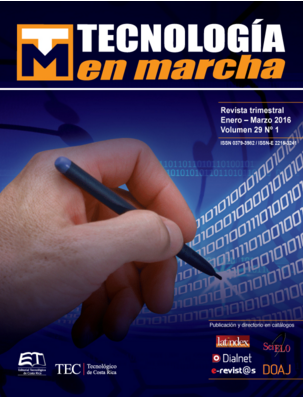Application of Markov Chain in a production process of in vitro plants
Main Article Content
Abstract
The application of Biotechnology includes a number of industrial processes involving living organisms or parts of them. The interaction of genotype with other industrial manipulation factors, characterized by predictable actions and random elements, makes the system to be stochastic. Commercial production of in vitro plants is one example of the biotechnology industry, where the production process consists of the propagation of plants in sterile growth media under controlled physical conditions. During this process, contamination or death of in vitro plants is considered as scrap (waste); however, if plants present oxidation or deformation they have to be reworked, in order to recover or reincorporate to the previous stage. Plant material requirement to accomplish a client demand was studied using the in vitro production process of Solanum tuberosum from the company VitroPlant S.A., to establish a model using Markov Chain Method, in which scrap and rework are included. Thus, the Markov method is a viable option in biological production processes that could be applied to other plant species and even other systems using different living organisms, such as fungi, bacteria, insects and algae, common in the industry.
Article Details
Los autores conservan los derechos de autor y ceden a la revista el derecho de la primera publicación y pueda editarlo, reproducirlo, distribuirlo, exhibirlo y comunicarlo en el país y en el extranjero mediante medios impresos y electrónicos. Asimismo, asumen el compromiso sobre cualquier litigio o reclamación relacionada con derechos de propiedad intelectual, exonerando de responsabilidad a la Editorial Tecnológica de Costa Rica. Además, se establece que los autores pueden realizar otros acuerdos contractuales independientes y adicionales para la distribución no exclusiva de la versión del artículo publicado en esta revista (p. ej., incluirlo en un repositorio institucional o publicarlo en un libro) siempre que indiquen claramente que el trabajo se publicó por primera vez en esta revista.

